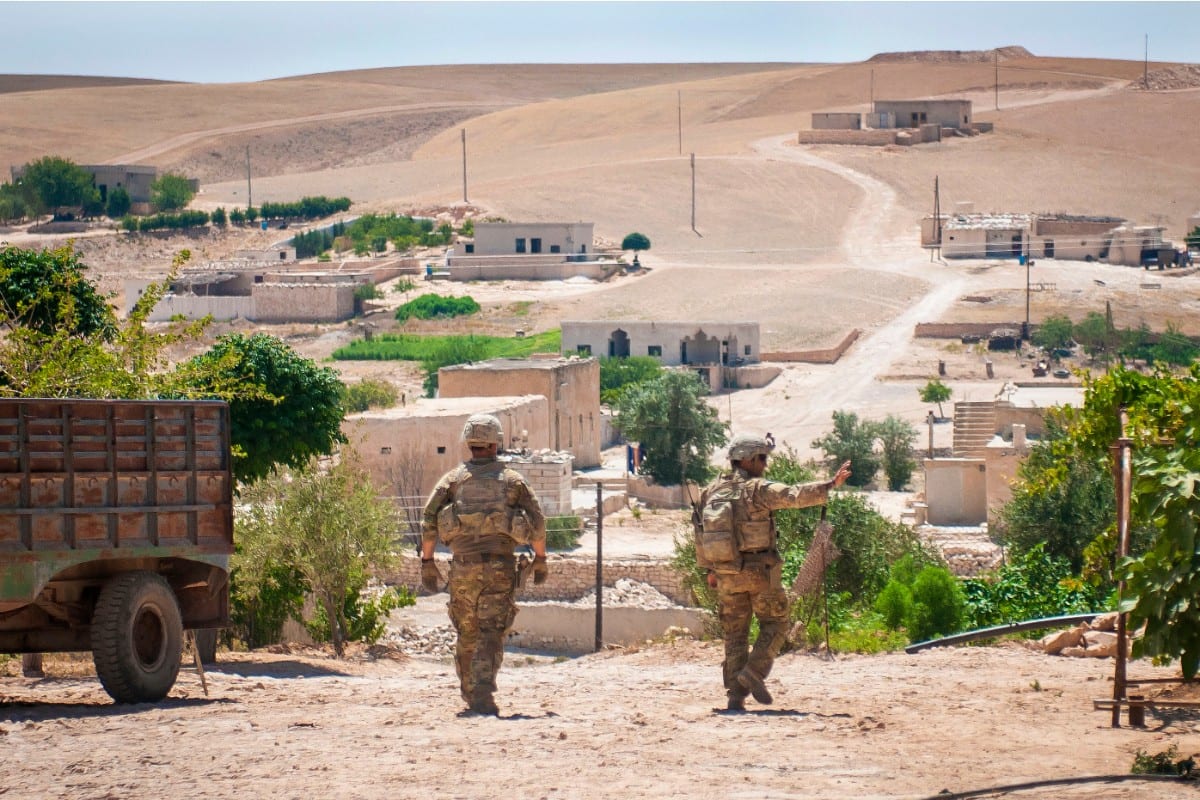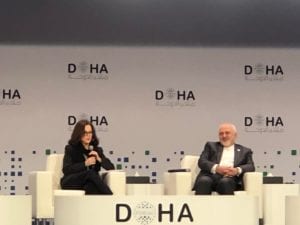 U.S. Army photo by Staff Sgt. Timothy R. Koster
U.S. Army photo by Staff Sgt. Timothy R. Koster
Trump Administration Decision to Withdraw from Syria Another Sign U.S. Influence is Waning
The Trump Administration has abruptly announced that it will pull all American forces out of Syria. This is only the most recent example of how American actions are making the power of the United States smaller. In light of this short-sighted and capricious decision by President Trump, it is tempting to throw all the blame for the diminishing of American influence in the Middle East his way, but the Bush and Obama Administrations also must share their own part of the blame for America’s growing irrelevance in this region. While the Bush Administration overreached and the Obama Administration suffered from a lack of ambition, it now appears that the Trump Administration will show that American commitments mean nothing.
On December 15 and 16, I attended the Doha Forum, an annual gathering of world leaders, policymakers, media, and commentators held in the capitol of Qatar. After a weekend of intense speechmaking, panel discussions, and meetings, I was convinced that the Middle East is slowly adapting to a new reality – one in which America is far less relevant.
Even though Americans were probably the greatest number of participants (not including the host Qataris), the United States was hardly mentioned during panels not including an American. Panel discussions about the Gulf Crisis and the Blockade of Qatar focused on regional dynamics. Speeches about humanitarian crises focused on local solutions, while discussions about energy exports looked at growing Asian demand. I am convinced that the security order in the Middle East is moving on without America.
Notably, however, there were two notable exceptions: the war against ISIS and Iran. Two areas where American military power is necessary and decisive. Brett McGurk, the Special Presidential Envoy for the Global Coalition to Defeat ISIS, spoke about how ISIS was down to the last 1% of its fighters, and the importance of finishing the job against them. Underlining the surprise nature of Trump’s announcement, at no time did McGurk even hint that the U.S. would be leaving Syria. His remarks there were similar to ones he made at a State Department briefing last week:
And if we’ve learned one thing over the years, enduring defeat of a group like this means you can’t just defeat their physical space and then leave; you have to make sure the internal security forces are in place to ensure that those gains, security gains, are enduring. So the enduring defeat of ISIS means not just the physical defeat, but make sure that we are training local security forces. So that will take some time.

Javad Zarif and Robin Wright
Secondly, the issue of Iran’s role in the region remains central, because of American efforts to isolate and contain Tehran. At the Forum, Foreign Minister Javad Zarif was interviewed by Robin Wright of the New Yorker, saying that Trump keeps sending requests to Iran to talk – but that his country won’t engaged in discussions with a country that demands adherence to 12 conditions before the talks even begin. Overall, the theme of his talk was explicitly about presenting Iran as the alternative to American power in the Middle East. He did say that sanctions were hurting Iran, but also that his country is used to sanctions – and the economy was harmed far more by the sanctions of the 1980s. By the tone of the response in the audience, it was clear that Iran is convincing others that the U.S. campaign against it is both unjust and unnecessary.
As President Trump announces his withdrawal of troops from Syria, I worry that the U.S. will lose its last remaining shred of credibility in the only area of America is still relevant: military force. Even if the U.S. was politically, diplomatically, and culturally ignored, every nation still respected the American ability to shape events with the use or threat of force. By pulling out of Syria, the Trump Administration is signaling an unwillingness to use force. Moreover, this decision may further undermine the policies attempting to contain Iran because National Security Advisor Bolton had specifically linked American troops in Syria to the presence of Iranian troops.
The truth is, American military power has not changed: the U.S. is still the only external force in the Middle East capable of both deterring aggressive action and shaping events with violence. However, this decision further will confirm the perception that the U.S. is not a reliable partner and is not interested in the region. In a region as volatile as this, we should worry that this will lead to more violence.





